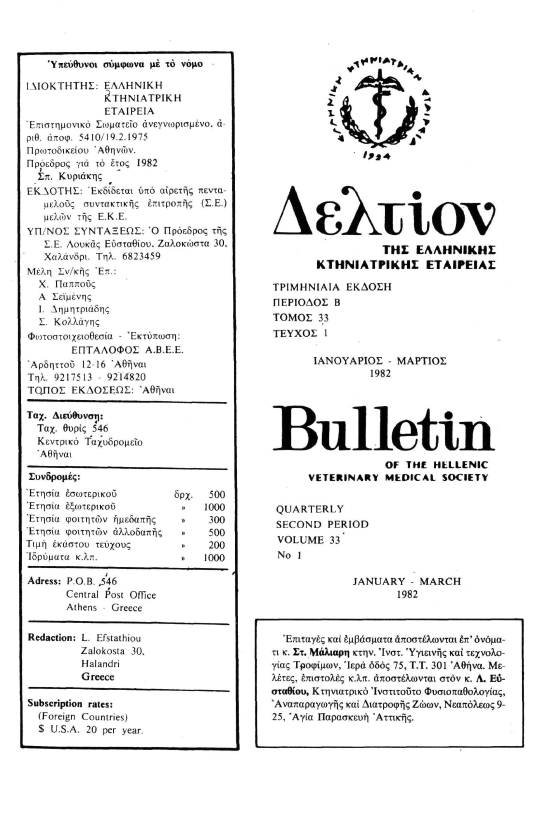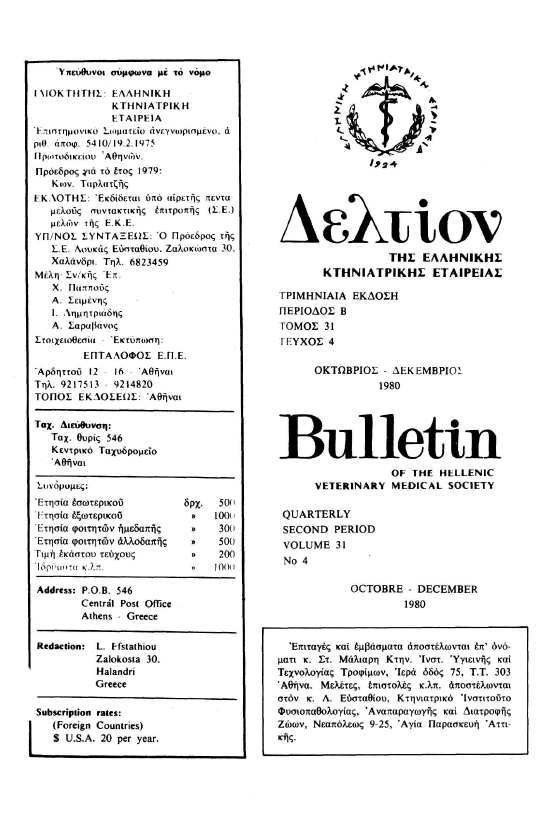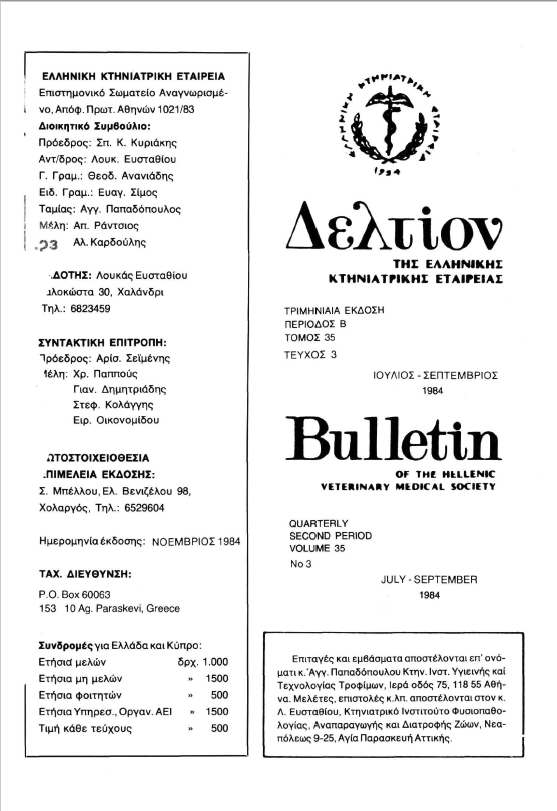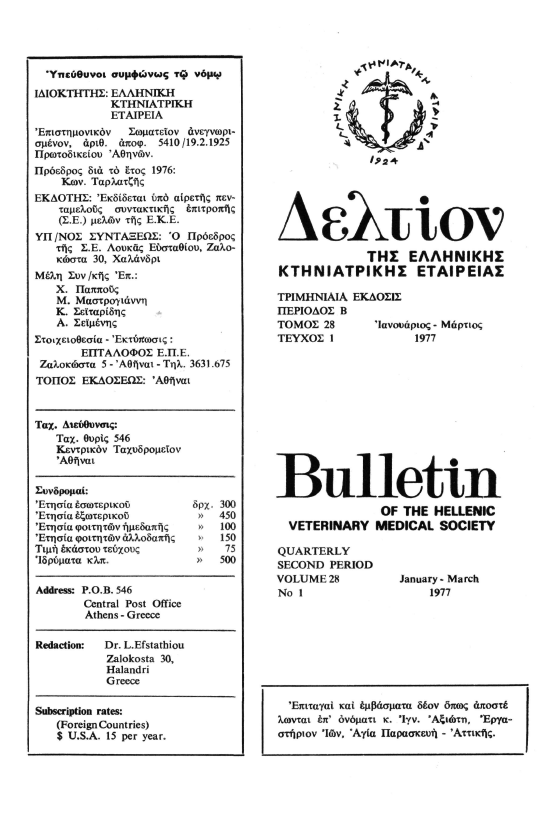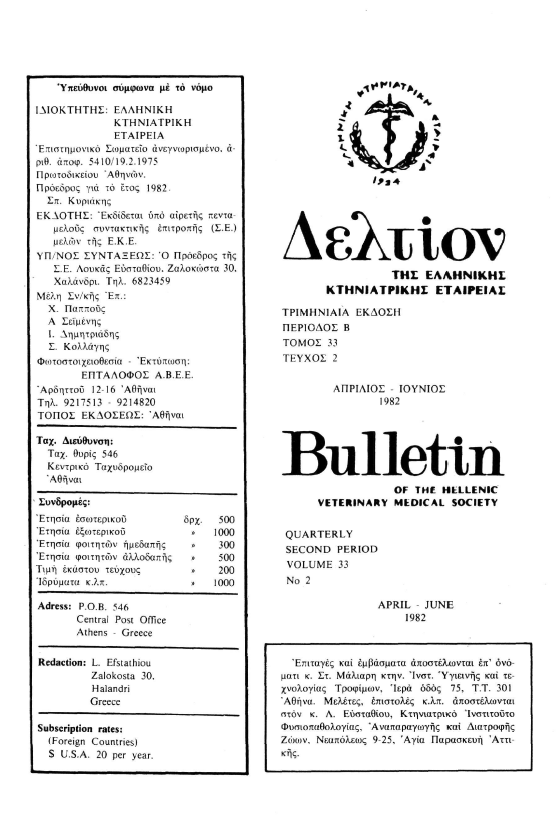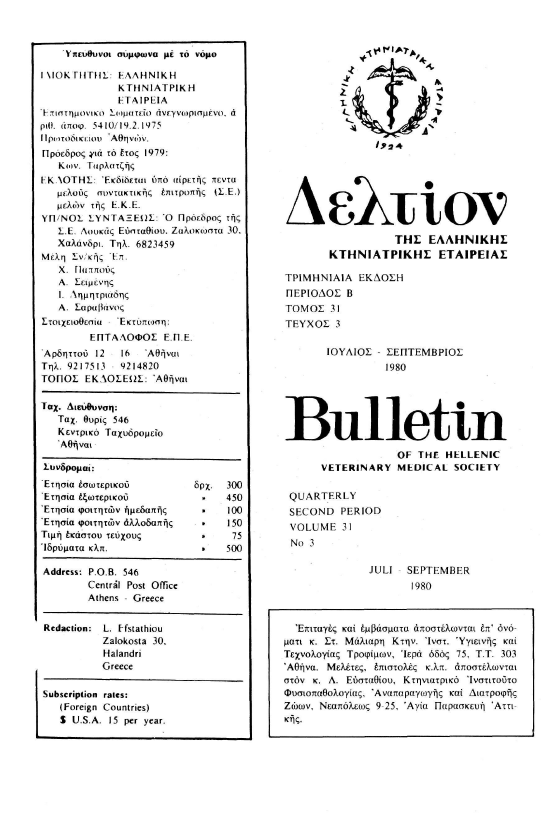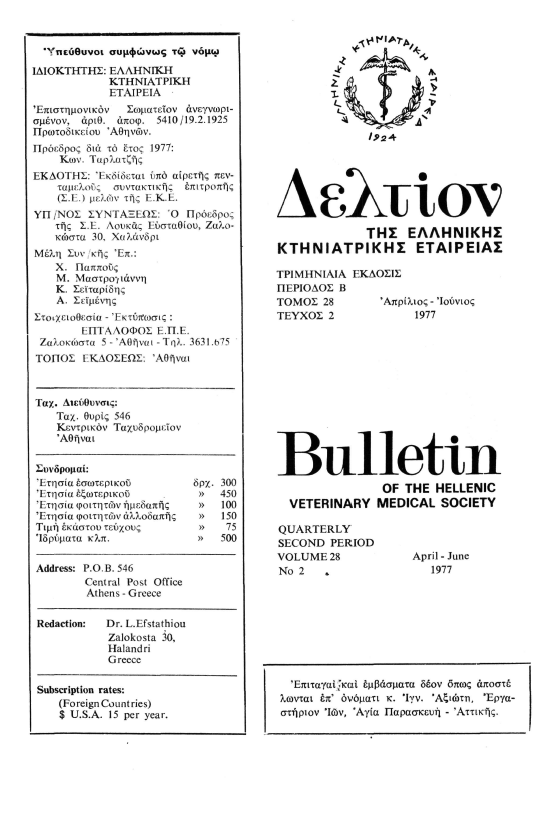Slow virus diseases of the sheep in Greece. II. Laboratory diagnosis of Progressive Pneumonia ( Maedi)
Abstract
Pulmonary Adenomatosis (Jaagsiekte) and Progressive Pneumonia (Maedi) of the sheep were reported in Greece in 1952 the first and in 1967 the second. Clinical cases have been recognized in sheep flocks in various parts of the country ever since. Their study was based on the clinical, anatomopathological and histopathological findings. The laboratory diagnosis for Maedi was recently introduced using the agar gel immunodiffusion test, in petri dishes, according the cutlip's method. Two templates cutting wells of different capacity were used: 60μ! the first and 30μ1 the second. Beside the less quantity of reagents required, precipitation lines appeared twenty four hours earlier than with the first template however, more experience is needed before final conclusions could be drown
Article Details
- How to Cite
-
ΜΑΣΤΓΟΓΙΑΝΝΗ Μ., ΜΑΓΓΑΝΑ Ο., ΣΕΪΜΕΝΗΣ Α., & ΣΚΟΥΛΑΣ Ε. (2019). Slow virus diseases of the sheep in Greece. II. Laboratory diagnosis of Progressive Pneumonia ( Maedi). Journal of the Hellenic Veterinary Medical Society, 34(3), 225–229. https://doi.org/10.12681/jhvms.21599
- Issue
- Vol. 34 No. 3 (1983)
- Section
- Articles

This work is licensed under a Creative Commons Attribution-NonCommercial 4.0 International License.
Authors who publish with this journal agree to the following terms:
· Authors retain copyright and grant the journal right of first publication with the work simultaneously licensed under a Creative Commons Attribution Non-Commercial License that allows others to share the work with an acknowledgement of the work's authorship and initial publication in this journal.
· Authors are able to enter into separate, additional contractual arrangements for the non-exclusive distribution of the journal's published version of the work (e.g. post it to an institutional repository or publish it in a book), with an acknowledgement of its initial publication in this journal.
· Authors are permitted and encouraged to post their work online (preferably in institutional repositories or on their website) prior to and during the submission process, as it can lead to productive exchanges, as well as earlier and greater citation of published work.




